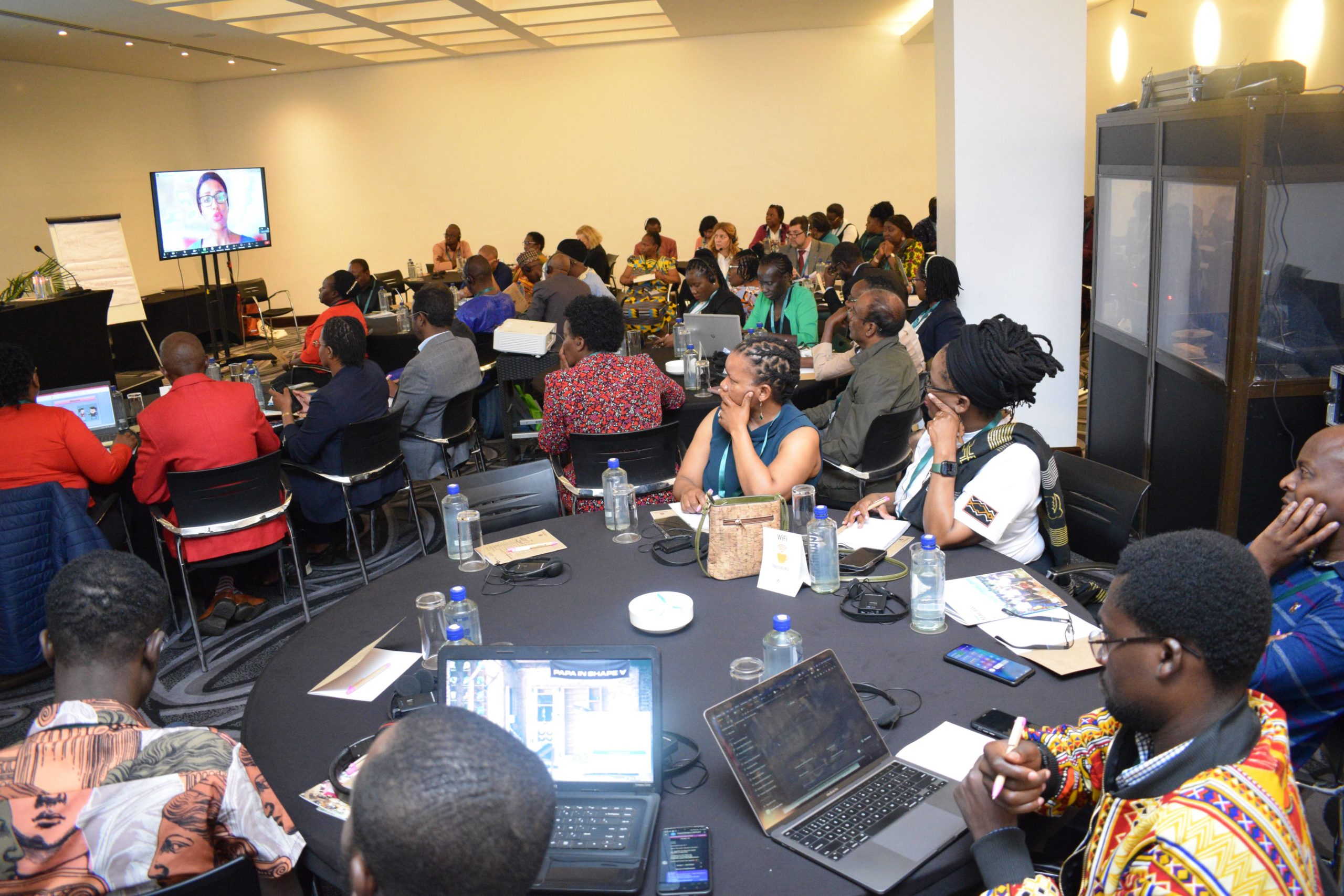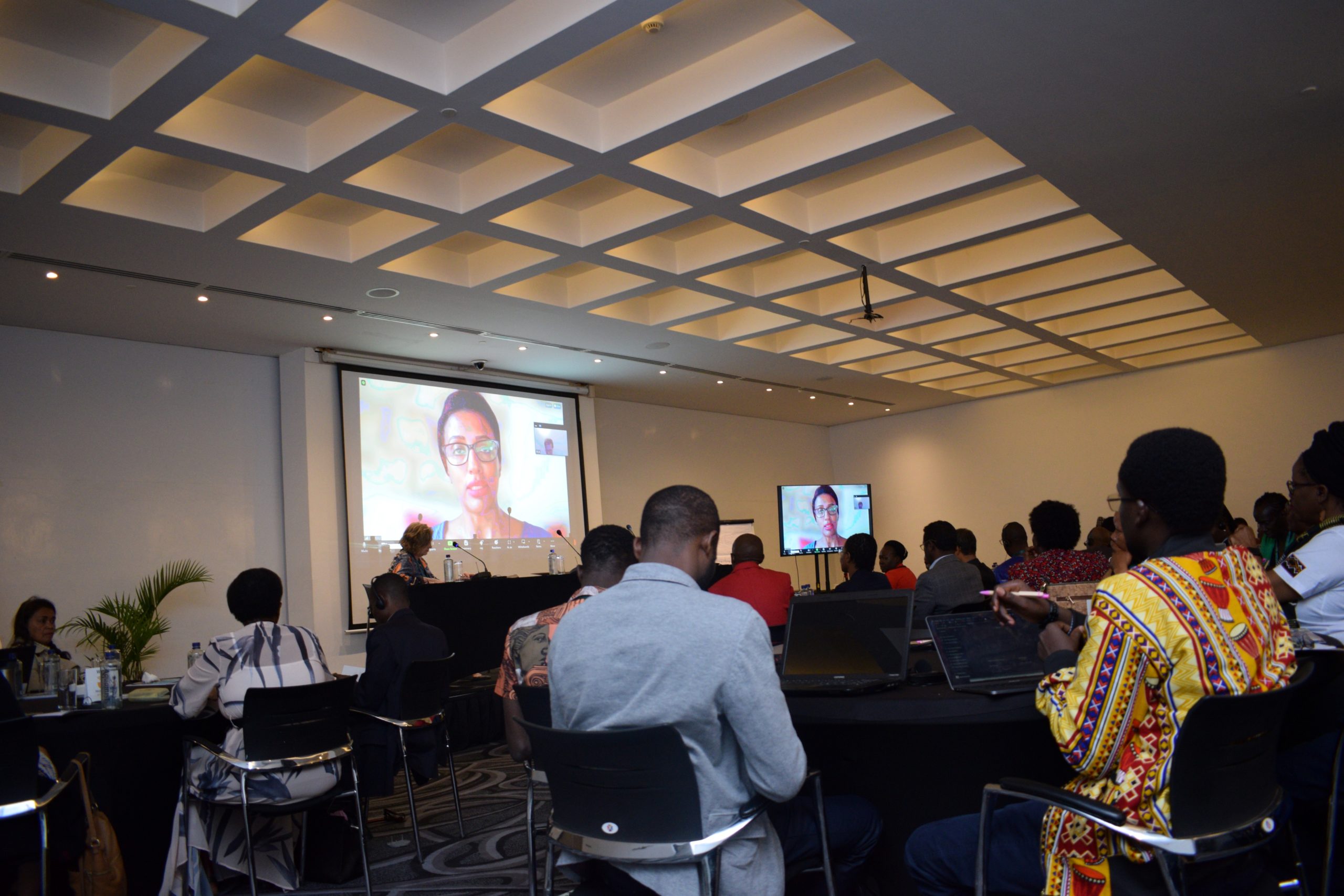Libraries delivering on UN goals in Sub-Saharan Africa
20 October 2023

Representatives of four different UN agencies met with over fifty librarians from across Sub-Saharan Africa at our mini-conference on how libraries can contribute to delivering the goals of the United Nations, identifying a wealth of opportunities for engagement. This event was made possible thanks to a grant from Stichting IFLA Global Libraries.
IFLA has long worked at the global level in order to underline the role that libraries can play in delivering on the full range of sustainable development goals. Through providing meaningful access to information, our institutions and profession make a real difference in people’s lives, around the world.
These arguments are just as valid, of course, at the regional, national and local levels, and so IFLA is also active in providing the information and tools that colleagues need to show their contributions, receive recognition, and build partnerships.
Our belief is not just that advocacy and relation-building with decision-makers is an essential part of the work of libraries, but that engaging with international initiatives and institutions can leverage success towards national goals.
It was therefore a logical step, as part of our wider workshop on strong and sustainable library fields in Sub-Saharan Africa, to meet with representatives of the UN agencies and offices based there.

IFLA President Vicki McDonald opened the event, alongside Chair of the IFLA Regional Council Alejandro Santa, and Edlam Abera Yemeru, Chief of the Knolwedge and Innovation Branch at UN Habitat. Dr Yemeru underlined the urgent need for progress in order to deliver on the SDGs. Action at the local level would be essential to get back on track, with libraries in turn providing a key local infrastructure.
A second session looked at the important of evidence and information in delivering on environmental policy goals. Dr Rula Qalyoubi, Senior Programme Management Officer and UNEP Science-Policy Sub-programme Coordinator, underlined her strong support for the role of libraries, and the need to build alliances to ensure respect for evidence.
Thirdly, we heard from UNESCO representatives – Sharmaine Koh, Communications and Information Sector, UNESCO Nairobi and Xianhong Hu, Programme Specialist, UNESCO Paris. They highlighted the very wide range of projects and activities where libraries could engage, from preservation of manuscripts to internet universality.
Finally, a whole panel of UN librarians – Angeline Djampou, Head, Knowledge and Publications Management Unit, UNEP, Irene Onyancha, Chief of Knowledge Management Services, UN ECA and Hellen Nyabera, Head, Knowledge Management Unit, UN Habitat talked about their work and highlighted networks and programmes in which librarians across Africa could get involved.
All in all, UN participants left with a strong sense of the engagement of libraries in support of their goals, and the librarians with both inspiration and clear ideas of how to get involved.
We will be working with participants, as part of follow up from the workshop on strong and sustainable library fields in Sub-Saharan Africa in order to build on these connections still further and ensure that working with the UN is a key pillar of the work of African libraries going forwards.
This event was made possible thanks to a grant from Stichting IFLA Global Libraries.